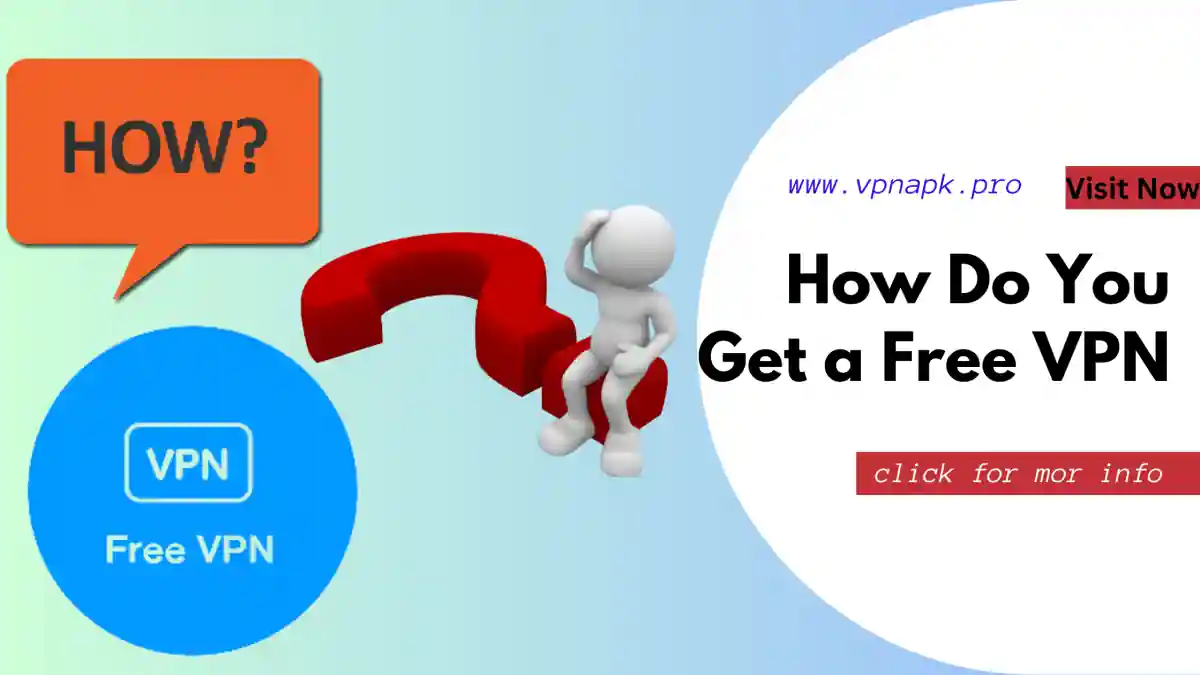In a world where online privacy and security have become paramount, many individuals seek ways to safeguard their digital presence without breaking the bank. This leads to a common question: How do you get a free VPN? In this article, we’ll explore the world of free VPN services, the benefits and limitations they offer, and the steps to acquire a free VPN for your online protection.
Understanding Free VPN Services
A Virtual Private Network (VPN) creates a secure and encrypted connection between your device and a remote server. It allows you to browse the internet anonymously and access geo-restricted content. While paid VPNs offer premium features and enhanced security, free VPNs are a popular choice for those looking to get started without spending money.
Benefits of Free VPNs
- Cost Savings: The most apparent advantage is that they’re free of charge, making them accessible to users on a tight budget.
- Anonymity: Free VPNs offer a degree of anonymity by masking your IP address and encrypting your internet traffic.
- Access to Geo-Restricted Content: Many free VPNs allow users to bypass geo-restrictions and access content from different regions.
Limitations of Free VPNs
- Limited Server Locations: Free VPNs often have a restricted number of server locations, which can result in slower speeds and limited access to content.
- Lower Security: Free VPNs may not offer the same level of security and encryption as their paid counterparts. This could leave your data vulnerable.
- Data Caps: Some free VPNs impose data caps, limiting your internet usage. Once you exceed the cap, your connection may become slow or unusable.
- Privacy Concerns: Free VPNs might log your online activities or share your data with third parties, compromising your privacy.
How to Get a Free VPN
If you’re interested in acquiring a free VPN, follow these steps:
1. Research Free VPN Providers
Start by researching reputable free VPN providers. Look for those with a strong reputation for privacy, transparency, and minimal logging of user data. Some well-known free VPN services include ProtonVPN, TunnelBear, and Windscribe.
2. Visit the Provider’s Website
Go to the official website of the chosen VPN Free provider. Sign up for an account, which typically requires an email address and password.
3. Download and Install the VPN App
Download the VPN app for your device’s operating system (e.g., Windows, macOS, Android, iOS). Install the app following the provided instructions.
4. Launch the VPN App
Open the VPN app and log in using the credentials you created in step 2.
5. Connect to a Server
Select a server location from the list provided by the free VPN service. Click “Connect” to establish a secure VPN connection.
6. Enjoy Your Free VPN
Once connected, your internet traffic is encrypted and routed through the chosen server, providing you with online anonymity and access to geo-restricted content.
Choosing the Right Free VPN
While free VPNs offer cost-effective solutions, it’s essential to choose the right provider:
- Read Reviews: Research user reviews and expert opinions to gauge the reputation and reliability of the free VPN.
- Privacy Policy: Carefully review the VPN provider’s privacy policy to ensure they don’t log or share your data.
- Security Features: Check for essential security features like encryption protocols and a kill switch to safeguard your data.
- Server Locations: Opt for a free VPN with server locations that align with your online needs.
- Data Caps: Be aware of any data limitations imposed by the free VPN provider.
(FAQs) related to getting a free VPN:
1. What is a VPN, and why would I want a free one?
- A VPN, or Virtual Private Network, is a tool that encrypts your internet connection, providing online privacy and security. You might want a free VPN to access geo-restricted content, enhance your online anonymity, or protect your data without incurring costs.
2. Are all free VPNs safe to use?
- Not all free VPNs are safe. While some reputable providers offer free services with minimal limitations, others may compromise your privacy or security. It’s crucial to research and choose a trustworthy free VPN with a strong reputation for privacy and transparency.
3. Do free VPNs have data limitations?
- Yes, many free VPNs impose data caps or limitations on usage. Once you exceed these caps, your connection may become slow or restricted. Be aware of any data limitations before choosing a free VPN.
4. Can I use a free VPN to access streaming services like Netflix?
- Some free VPNs can help you access geo-restricted streaming content, but it’s not guaranteed to work with all platforms. Paid VPNs often offer better performance and reliability for streaming.
5. Are there risks associated with using free VPNs?
- Yes, there are potential risks. Free VPNs may log your online activities, share your data with third parties, or lack essential security features. It’s crucial to choose a free VPN provider carefully and understand the limitations and privacy policies associated with their service.
Conclusion
Acquiring a free VPN is a feasible option for those seeking online privacy and access to geo-restricted content without spending money. However, it’s crucial to choose a reputable provider, be mindful of potential limitations, and carefully review their privacy policies. By following these steps and conducting thorough research, you can get a VPN that suits your online protection needs while staying within your budget.

